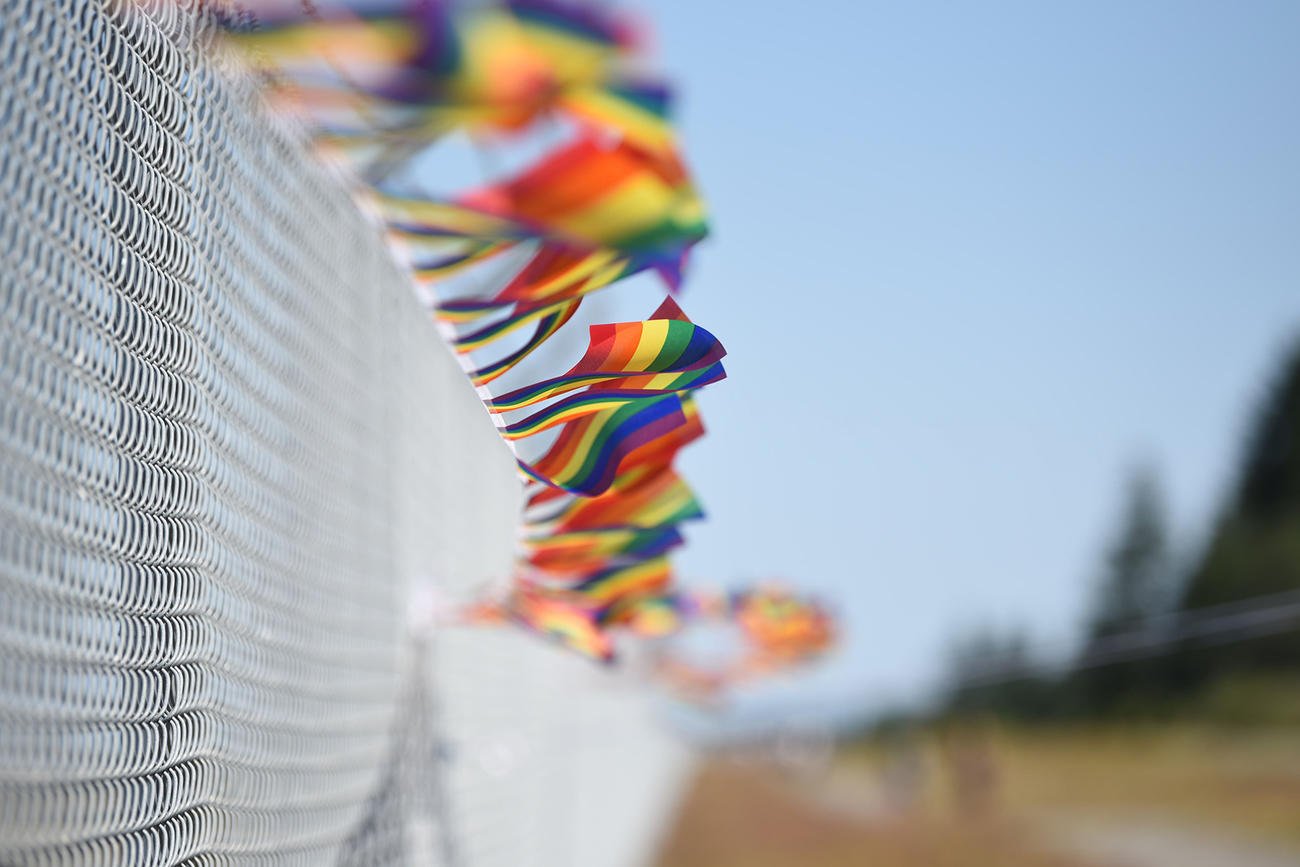

Veterans who were kicked out of the military under policies that prohibited gay and lesbian service members would have an expedited way to get their discharge status upgraded or references to their sexuality removed from their paperwork under a settlement agreement announced Monday.
The settlement, which still needs to be formally approved by a judge, would bring to an end a class-action lawsuit that was filed in 2023 by veterans who were discharged under “Don’t Ask, Don’t Tell” or similar earlier bans on gay service members. It would offer a remedy to thousands of veterans who continue to face difficulties in getting their discharges upgraded and accessing veterans benefits more than a decade after the repeal of the “Don’t Ask, Don’t Tell” policy that effectively banned gay troops.
“Coming from a family with a long history of military service, I was beyond proud to enlist in 1985 to contribute to my country,” Sherrill Farrell, a Navy veteran who is one of the plaintiffs in the lawsuit, said in a news release about the settlement. “When I was discharged because of my sexual orientation, I felt that my country was telling me that my service was not valuable — that I was ‘less than’ because of who I loved. Today, I am once again proud to have served my country by standing up for veterans like myself and ensuring our honor is recognized.”
The settlement has two prongs, according to the news release and court filings. For those who have less-than-honorable discharges, they will be able to opt into a group review process to upgrade their discharges, allowing them to bypass a yearslong individual application process.
For anyone who already has an honorable discharge or who has an uncharacterized/entry-level discharge, the settlement will allow them to request an administrative change to their DD-214s to remove any references to their sexual orientation without a formal Board of Corrections review.
Lawyers for the plaintiffs estimate more than 30,000 veterans could qualify for the new streamlined processes in the settlement.
“This proposed settlement is a historic step forward, providing LGBTQ+ veterans with a critical opportunity to request revisions to their discharge records,” Radha Manthe, a pro bono lawyer with King and Spalding on the plaintiff’s legal team, said in the news release. “For too long, veterans who were unjustly discharged had to navigate a confusing and burdensome system to correct their records. This settlement brings a much-needed resolution by simplifying that process and restoring the dignity that these veterans rightfully deserve for their service.”
Asked for comment about the settlement, the Defense Department referred Military.com to the Justice Department, which did not immediately respond to a request for comment.
Veterans who were discharged under “Don’t Ask, Don’t Tell” and earlier policies were already able to apply to have their discharges upgraded, but the lawsuit argued the previous process was burdensome, traumatizing and violated veterans’ constitutional rights.
Having a less-than-honorable discharge cuts off access to some Department of Veterans Affairs benefits, including home loans, tuition assistance and health care. In addition to the effect on VA benefits, the lawsuit argued that having a DD-214 that references sexuality forces a veteran to “out” themselves in any situation in which they might need to prove they are a veteran, such as on a job application.
Last year, the Pentagon announced it was automatically upgrading the discharges of more than 800 former service members who were kicked out of the military under “Don’t Ask, Don’t Tell.”
After Pentagon officials started the proactive review of some “Don’t Ask, Don’t Tell” records, they sought to have the lawsuit dismissed, but a judge ruled that the case should continue because the plaintiffs “suffer new injuries attributable to [the Pentagon] each time they must present their paperwork disclosing their sexual orientation to obtain benefits or are unable to access benefits.”
Settlement negotiations started after the judge declined to dismiss the case, according to the proposed settlement filed Monday in the U.S. District Court for the Northern District of California.
The streamlined processes created by the settlement will be available for at least three years, according to the proposed agreement. The first group application for upgraded discharges will happen nine months after the settlement is approved and continue on a rolling basis every three months, according to the agreement.
“This settlement is not just about correcting records; it’s about restoring the honor and pride that LGBTQ+ veterans have always deserved but were denied,” Lilly Steffanides, a Navy veteran who is also a plaintiff, said in the news release. “I hope this brings justice to others who served with courage, only to face exclusion and discrimination.”
Related: Veterans Discharged Under ‘Don’t Ask, Don’t Tell’ and Earlier Bans Sue Pentagon to Correct Records
